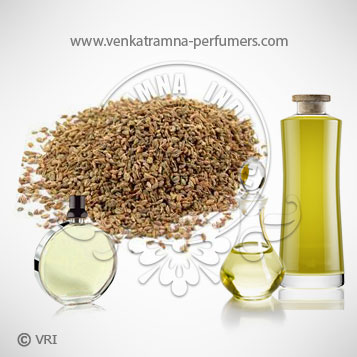
| Botanical Name | Trachyspermum Copticum |
| Common Name | Ajwain, Copticum, Carum Copticum |
| Country of Origin | India, Pakistan |
| Solubility | Soluble in oil insoluble in water |
| Specific Gravity | 0.910-0.930 |
| Optical Rotation | Upto 5° |
| Refrective Index | 1.498 – 1.504 |
| PlantPart | Seeds of Carum Copticum plant |
| Bland With | Bergamot, Clary Sage, Lavender, Geranium, Jasmine, Neroli, Patchouli, Tea Tree, Rose, Lemon and Ylang-ylang. |
| CAS No | Not Applicable |
| Flash Point | Not Applicable |
| Extraction Method | Steam Distilled |
Ajowan oleorisin represent overall flavor profile of spices. It comprises of volatile essential oil and non volatile resinous fraction comprising taste components. Oleoresin of ajowan is pale green oily liquid with characteristic aroma and sharp taste attribute. The high content of thymol makes ajowin oleoresin ideal for medicinal uses.
Studies show that Ajwain originated in Middle East, probably in Egypt and Indian Subcontinent. But it has also been proved to be found in Iran and Afghanistan. Rajasthan and Gujarat are major states of India that are known to cultivate the Ajwain crop on large scale.
Color : Pale green oily liquid with characteristic aroma,
Aroma : This Oil has a very Spicy, Sharp and Herbaceous Scent.
Primarily contains 35 – 60% thymol, p-cymine (10-16%), a-terepinene (10-16%), ß-pinene (4-5%) and dipenene (4-6%).
Spice Oleoresin is widely used for food preparation as a spice. It has antiseptic, germicidal, and digestive property.